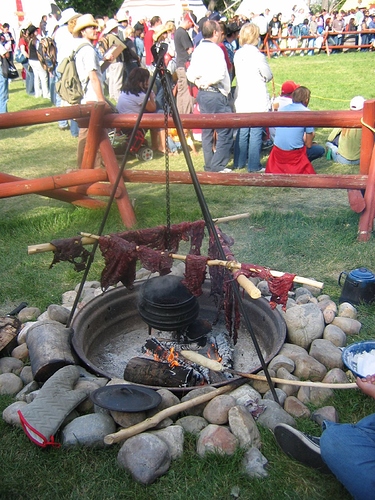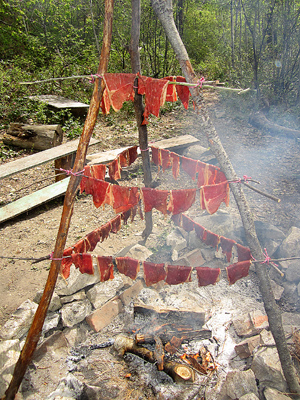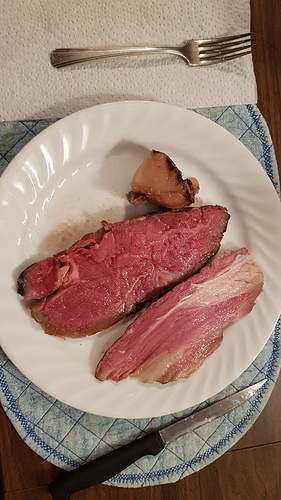I thought this was quite interesting:
This is an interesting conversation with Dr. Bill Schindler, who is Associate Professor of Anthropology and Archaeology at Washington College in Chestertown, Maryland.
At one point, he discusses going to visit a hunter gatherer tribe to make what he thinks will be jerky. Instead, what they did was kill an animal (lamb?), take the parts off that had to be eaten, then basically “unwind” the animal into thin meat strips. They dried these. They also crushed the bones, and dried these. But instead of making “jerky”, they made soup. The dried meat would reconstitute, and the bones added flavor and nutrition to the soup. They then ate/drank the soup.
I thought this was brilliant and unexpected. I was expecting tallow, pemmican, jerky, etc. Instead, soup.



